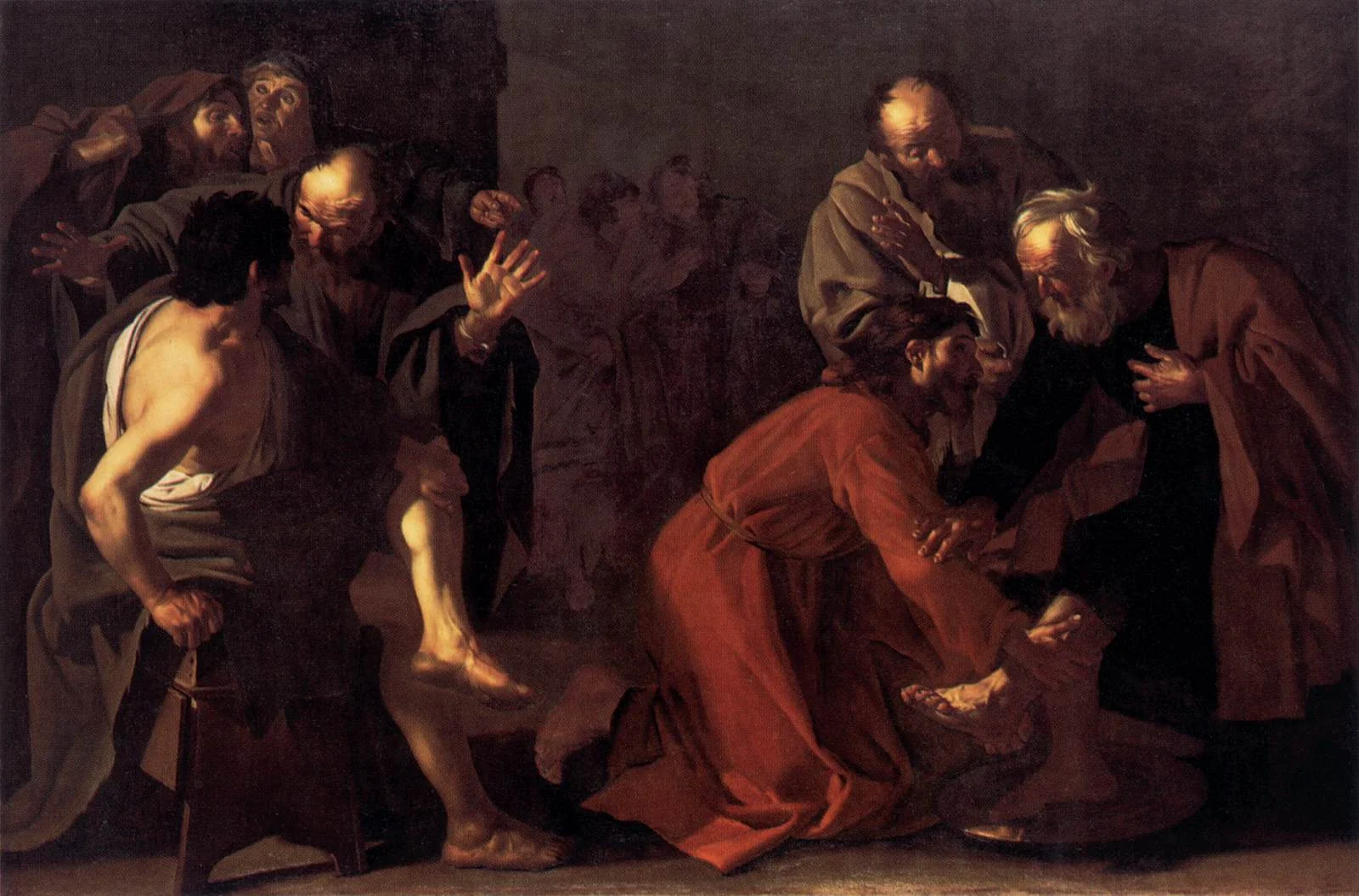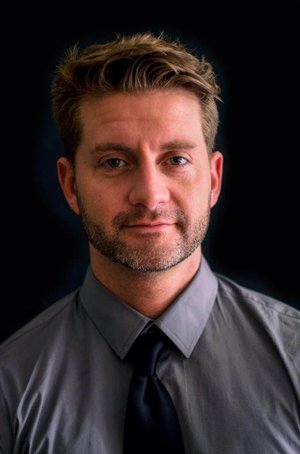Robert Frost was a poet on whom nothing was lost, nor was anything outside of his poetic jurisdiction. His poetry—though seemingly narrow in its New England regionalism, prosaic in its focus, and proletariat in its characterization—envisions a conspicuous natural world containing an intrinsic theological system of great interest. Frost’s knowledge of the Bible and his poetic engagement with religious doctrine reveal an acute investment in the theological by one of the most important American writers of the twentieth century. This investment proves an underlying argument in much of Frost’s work: perhaps an artistically literary experience of the natural necessitates consideration of the theological. Poems like “The Oven Bird,” “Nothing Gold Can Stay,” and “Never Again Would Birds’ Song Be the Same” unveil Frost to be a writer deeply invested in the use of theological tenets for deeper poetic meaning and a creative mind especially taken with the biblical narrative of the Fall. Within Frost’s verse lies an apologetic of creativity, a philosophy of poesy that implies the natural world cannot honestly be captured without the presence of the theological.
Frost’s continual return to the Fall—along with his employment of other theological matters, such as natural revelation—find fullest expression in the natural worlds of his poems. The landscapes, wildlife, and seasonal cycles of nature are all subject to theological animation and all detectable through metaphor. For Frost, these metaphors of animation could not attain their fullest meaning without synthesizing the natural with the theological. An important consideration when discussing any poet’s inclusion of theologically charged is his use of metaphor. And, in fact, Frost maintained an ardent belief in metaphor as the chief trope and function of verse; according to Frost, metaphor is where poetry begins, exists, and ends:
[T]here are many other things I have found myself saying about poetry, but the chiefest of these is that it is metaphor, saying one thing and meaning another. . . . Poetry is simply made of metaphor.
What I see as a type of Frostian orthodoxy, metaphor enables meaning by enacting a poetic schema inclusive of religious, scientific, and philosophical discourse. In Frost’s own terms, metaphor is a way to “say matter in terms of spirit.” If there is spirituality, theology, and the supernatural in Frost’s poems, they reside in his implementation of metaphor. Through metaphor, Frost opens the natural to the supernatural, and every natural object, every leaf, tree, brook, and animal is subject to fuller meaning through the metaphorical. Metaphor becomes a theological act.
The conversion from theological thought to metaphor was for Frost the ultimate act of literary and religious expression. If theology is the study of God, then metaphor is Frost’s theology, his attempt to give form to theological inquiry. For Frost, metaphor making is the doing of theology. Exposure to one trope is exposure to the other, as Frost said, “the person who gets close enough to poetry, he is going to know more about the word belief than anybody else knows, even in religion nowadays . . . now I think—I happen to think—that those three beliefs that I speak of, the self-belief, the love-belief, and the art-belief, are all closely related to the God belief.” Through poetry, one can “bring the thing into existence.”
In his poem “The Oven Bird,” Frost uses the theological tropes of the Fall along with natural revelation to give new meaning to the natural world of the poem while also continuing to develop metaphorical poetics in which meaning itself must be both natural and supernatural. Frost displays remarkable poetic dexterity by both theologizing and naturalizing the act of this common bird’s call.
There is a singer everyone has heard,
Loud, a mid-summer and a mid-wood bird,
Who makes the solid tree trunks sound again.
He says that leaves are old and that for flowers
Mid-summer is to spring as one to ten.
He says the early petal-fall is past
When pear and cherry bloom went down in showers
On sunny days a moment overcast;
And comes that other fall we name the fall.
He says the highway dust is over all.
The bird would cease and be as other birds
But that he knows in singing not to sing.
The question that he frames in all but words
Is what to make of a diminished thing.
I see this poem primarily exploring two theological tropes in relation to one another: natural revelation and the doctrine of the Fall. Note that, as is so often with Frost, the theological is deeply contextualized in the world of nature. Like the ovenbird’s nest, characteristically built on the forest floor, Frost grounds theology in the natural world. On the other hand, the poem’s natural imagery channels a theological dimension that forces the reader to contend with the work’s metaphorical meaning. Precisely in this melding of immanence and transcendence lies Frost’s poetic agenda: to infuse nature with theological phenomena so that both spheres (the natural and the theological) inseparably coalesce. This coalescence, in turn, creates an apologetic for the necessity of theology in the poet’s creative act.
Here, in the claim that “everyone has heard,” Frost interjects the doctrine of natural revelation, a theme that wends its way throughout the entire poem. Natural revelation is the doctrine that God has revealed, and continues to reveal, himself to all men through the natural order. As systematic theologian Louis Berkhof states, “The mode of [natural] revelation is natural when it is communicated through nature, that is, through the visible creation with its ordinary laws and powers.”
The most relevant aspect of natural revelation—and the most relevant distinction between natural and special revelation—is its universality, its common annunciation to all mankind through nature. Being a student of both science and the bible and often troubled by their apparent differences, Frost frequently sought to fuse religious and natural imagery, and it is extremely probable that Frost was well acquainted with the biblical doctrine of natural revelation and potentially saw it as the literal and metaphorical melding of theology and science.
In the case of “The Oven Bird,” natural revelation manifests itself in the winged singer’s “loud” call that “everyone has heard.” Frost positions this ovenbird as a prophet of nature, characterized by his seasonality, the audience of his message, and the nature of his oratory. Significantly, the one note Frost provides for the poem mentions the ovenbird’s common designation as the “teacher bird.” As a “mid-summer and a mid-wood bird” the ovenbird is situated seasonally in the progressive natural order, and it is from his seasonal office that he declares a natural message to the “solid tree trunks.” The ovenbird’s first hearers are not human, but rather organic members of his community that respond to the bird’s message, “the solid tree trunks sound again.” The revelatory world of the bird’s song is accessible and detectable to the listeners of the natural world. Indeed, the poem’s speaker describes the bird’s message as “loud” and resonating to the surrounding natural realm as the trees “sound again” the ovenbird’s oracle, implying a form of acceptance of the message by its hearers. In anticipation of that end, the ovenbird’s oratory begins to introduce the poem’s other prominent theological trope: the theological trope of the Fall. It is in the sonnet’s octave that Frost delves into the substance of the ovenbird’s natural revelation while also inaugurating a theology of the Fall. As the sonnet unfolds, the picture grows increasingly grim. The sonnet reaches its turn in both tone and theological theme as the natural revelation of the octave turns poignantly to a treatment of the Fall in the sestet. The ovenbird reveals a declining natural order where the first beauty of spring life has passed and all is given to the imminent coming of fall:
He says that leaves are old and that for flowers
Mid-summer is to spring as one to ten.
He says the early petal-fall is past
When pear and cherry bloom went down in showers
On sunny days a moment overcast;
By mid-summer—the time of the ovenbird’s announcement—the leaves that spring birthed are old and on the verge of seasonal death. The ovenbird sings at a time of declivity as mid-summer holds little to no importance to other organisms in the poem. In a somewhat ambiguous line, Frost seems to say that “for flowers” summer is lowest on a scale of importance—numbered “one to ten”—because their time to bloom has past. The preposition “for” signals the position of the flowers as understood by the bird (“He says”). Just as the flowers’ petals have long fallen by mid-summer, so too have the pear and cherry trees, whose blooms “went down in showers/ on sunny days a moment overcast.” The bird speaks of sweeping loss and the beginning of death as leaves, flowers, and fruit trees—all images associated with the Garden of Eden—testify to their seasonal demise. As interpreter of this profound phenomenon reflected in nature’s cycles, the bird knows that mid-summer holds little importance for spring blooms and that the flowery life spawned in spring cannot live throughout summer.
The ovenbird’s universal song, the natural revelation everyone has heard, is an augury of seasonal diminishment. Having a masterful knowledge of the Old Testament, Frost constantly drew from its imagery and themes. Frost’s use of biblical imagery—particularly images of the Fall—in “The Trial by Existence,” “Nothing Gold Can Stay,” and “The Onset” (to list only a few) underscore his reliance on the theological here in “The Over Bird.” As both are certainly present in the first three chapters of the Genesis narrative, it is fitting that Frost would marry these two themes of natural revelation and the Fall. The biblical account of the Fall describes a naturally perfect realm in complete harmony with itself and man (Gen. 2:8-19). Upon the entrance of sin into the created order, not only mankind but nature is said to have fallen: “cursed is the ground because of you. . . both thorns and thistles it shall grow for you [mankind]. . .” (Gen. 3:17-18). The Fall is the most cataclysmic theological and ecological occurrence in all of scripture: the entire natural world fell from an ideal form to a perpetual state of aftermath. Likewise, “The Oven Bird” depicts a natural realm where life once existed in an ideal state of spring, but in which now organisms are in a fallen condition, degraded by the passing of spring into summer. Echoing the narrative voice in Genesis, the ovenbird declares a state of natural decadence; the message that everyone hears exclaims a state of fallenness.
The poetic speaker shifts slightly from what the ovenbird proclaims to a larger theological context:
And comes that other fall we name the fall.
He says the highway dust is over all.
The bird would cease and be as other birds
But that he knows in singing not to sing.
The question that he frames in all but words
Is what to make of a diminished thing.
“And comes that other fall we name the fall,” Frost declares with a definitive tone. The poem shifts to a more distinct doctrinal voice here. The octave presents a naturalistic mode of revelation: the poet can assert the theological implications of mid-summer’s diminishments. The double occurrence of “fall” in the first line of the sestet foregrounds the theme of the Fall that will run throughout the remainder of the poem. In this line Frost deploys his most foundational, and perhaps most important, poetic device—the previously explicated use of metaphor, Frost’s theology in poetic practice. At this point Frost begins to make his strongest metaphorical-theological connections.
When the poet says “and comes that other fall we name the fall,” the reader can certainly trace the seasonal meaning, which the poem endorses on its most basic level (spring to mid-summer to fall). However, the poem’s subtle theological undertones along with Frost’s insistence on metaphor should alert any interpreter that “fall” is a loaded term, one that draws on both natural and theological spheres. The ovenbird’s message of seasonal decay—the end of the flowers’ bloom at the peak of summer—culminates in the topos of the Fall of the natural order. The movement from natural occurrence to theological abstraction is a common gesture for Frost. The “fall,” both seasonal and lapsarian, is Frost’s entrance into both the natural and theological world in order to stretch the borders of each, interrogating the implications of one with the other, and perhaps rewriting the boundaries of both—all to create a highly charged poetics.
The speaker moves from his pun on the “fall” by returning once more to the message of the ovenbird: “He says the highway dust is over all.” The winged prophet describes a desolate condition in a sweeping statement. This fall, the Fall, has covered everything in the natural world. Going back to the role of human agency, it is the dust of the highway that has covered all. The poem seems to associate the origins of this desolation to a manmade object, perhaps as an indication of human agency in keeping with the Genesis narrative. Though the fallen world of the poem is purely natural, man—as the originator of sin in Genesis—is implicated as well.
After providing an aphorism on the Fall, the poem’s narrator then addresses the ovenbird’s condition: “The bird would cease and be as other birds/ But that he knows in singing not to sing.” These first two lines of the poem’s final quatrain provide a fascinating element to Frost’s use of the doctrine of the Fall. By postulating that the ovenbird “would cease and be as other birds,” the poet speaks to the bird’s role by reverting back to the biblical theme of functioning animals. Numerous times in the Old Testament animals were assigned specific functions, at times in an evil capacity (i.e. the serpent in the Garden of Eden—Gen. 3:1-4) but more often as agents for God (e.g. the dove sent from the ark by Noah—Gen. 8:8-9; the donkey who spoke to the prophet Balaam—Num. 22:28). Though there is no explicit divinity in the poem, the speaker makes a clear distinction between this ovenbird and other birds who merely sing without substance, “but that he knows in singing not to sing.”
The poem’s last two lines are by far the most powerful and poignant: “The question that he frames in all but words/ Is what to make of a diminished thing.” The theological elements of the poem necessarily culminate in the ovenbird’s inquiry. The speaker writes the last line as the sine qua non, the inevitable question from all the bird has said before. It is difficult to nail down what exactly this “thing” may be, but I think there are two likely options.
So profoundly diminished is this “thing” that the bird’s revelatory message primarily serves to frame the question of “what to make of a diminished thing.” Given the mid-summer state of immediate and approaching death, given the fallout and the degraded state of the natural world, what does one make of such faded and diminished objects? It is fitting that Frost ends with a question rather than a conclusion as he rarely seems interested—even in his exploration of biblical and theological tropes—in declaring answers. Instead, he interweaves the natural world of the poem with the theological and experiments with poetic meaning by metaphorizing the natural with the theological. Frost is more interested in writing catechistic verse than providing moral platitudes, and as a result, the poem concludes with inconclusiveness. The fallen condition of this “thing” bewilders the ovenbird, leaving the bird, the poetic speaker, and the readers in a state of contemplation over the poem’s two most prominent themes: the natural order and the assertion that it is fallen. Both themes, indeed Frost’s entire creative schema, argue for the presence of the theological as necessary for poeticizing the natural.
























